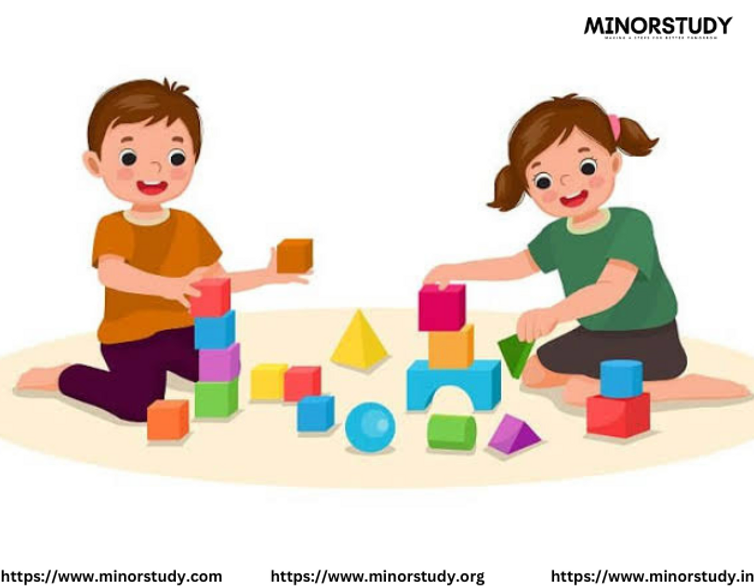12 Powerful Truths About Child Development Every Parent Must Know
Child development is one of the most beautiful and complex journeys a human being undertakes. It’s a continuous process that starts from birth and influences every aspect of life—physically, emotionally, socially, and cognitively. Understanding child development is essential not only for parents but for society as a whole because the early years lay the foundation for the rest of a person’s life.
- 📜 A Brief History of Child Development Understanding
- 🔍 Fascinating Facts About Child Development
- 🗓️ Timeline of Child Development Milestones
- 🌟 Why Child Development Is So Important in Our Lives
- ❓ Common FAQs About Child Development
- Q: What if my child is slower to reach milestones?
- Q: How can I encourage my child’s development at home?
- Q: Does screen time affect development?
- Q: Are developmental milestones the same worldwide?
- 🌍 Observance and Societal Impact of Child Development
- 💡 Important Points to Keep in Mind
- 🎉 Wishing Every Child a Joyful Growth Journey
- 🚀 Daily Life Impacts of Understanding Child Development
- ✅ Conclusion: Child Development Shapes Our Future
In this guide, we’ll explore the history, facts, FAQs, timelines, significance, and the importance of child development in our daily lives. We will also touch on how child development impacts society and offer heartfelt wishes for every child’s growth.
📜 A Brief History of Child Development Understanding
For centuries, children were often viewed as miniature adults without unique needs. However, over time, the understanding of childhood as a distinct and crucial stage of human development has grown:
Ancient Civilizations: Childhood was undervalued, with little attention to psychological or emotional development.
17th Century: Philosopher John Locke introduced the idea of the “blank slate” (tabula rasa), suggesting that experience shapes a child.
19th Century: Researchers like G. Stanley Hall pioneered scientific child psychology.
20th Century: Jean Piaget and Erik Erikson formulated developmental stage theories that highlighted how children think and grow.
Today: Advances in neuroscience and psychology continue to deepen our understanding, emphasizing early childhood interventions and holistic development.
🔍 Fascinating Facts About Child Development
90% of brain development happens by age 5. The early years are truly a critical window.
Children learn language faster when they hear more words spoken around them.
Play is a child’s “work” — it promotes creativity, social skills, and problem-solving.
Emotional security formed in childhood influences adult relationships.
Development happens unevenly; children may excel in some areas and lag in others.
Nutrition and sleep dramatically affect cognitive growth.
Attachment styles in infancy can shape future mental health.
Technology impacts development positively and negatively depending on usage.
Stressful environments can hinder developmental progress but positive support can reverse damage.
Children’s development varies culturally; what’s typical in one society may differ in another.
Fine motor skills like drawing predict academic readiness.
Emotional intelligence is as important as IQ in predicting success.
🗓️ Timeline of Child Development Milestones
Understanding typical milestones helps parents support their child’s growth without unnecessary worry:
0–12 months: Smiling, rolling over, babbling, responding to names.
1–2 years: Walking independently, first words, simple pretend play.
2–3 years: Running, forming short sentences, showing defiant behavior.
3–5 years: Imaginative play, counting, following multi-step instructions.
6–12 years: Reading, complex social interactions, understanding rules.
Teen years: Abstract thinking, identity exploration, emotional regulation.
Remember, these are guides—not rigid deadlines.
🌟 Why Child Development Is So Important in Our Lives
Child development affects every facet of human experience:
Emotional health: Secure development builds resilience and coping skills.
Education: Early milestones influence academic success and lifelong learning.
Social skills: Development guides how children form friendships and manage conflicts.
Physical health: Growth stages affect motor skills and coordination.
Future productivity: Healthy development nurtures creativity, leadership, and problem-solving.
Recognizing this importance encourages caregivers to create supportive, nurturing environments.
❓ Common FAQs About Child Development
Q: What if my child is slower to reach milestones?
A: Variation is normal. Consult a pediatrician if you’re concerned, but many children catch up naturally.
Q: How can I encourage my child’s development at home?
A: Talk, read, play, provide healthy food, and offer consistent love and attention.
Q: Does screen time affect development?
A: Excessive screen time can hinder development, but limited, educational use can be beneficial.
Q: Are developmental milestones the same worldwide?
A: Cultural differences influence some milestones, but basic physical and emotional milestones are fairly universal.
🌍 Observance and Societal Impact of Child Development
Many cultures and communities observe key milestones in childhood, highlighting the shared value of nurturing young lives. From naming ceremonies and first steps celebrations to education access programs, societies emphasize the importance of development.
Supporting child development benefits society by:
Reducing future health and social care costs.
Building a more educated and skilled population.
Creating emotionally intelligent, empathetic citizens.
Encouraging innovation by nurturing creative thinking early.
💡 Important Points to Keep in Mind
Every child is unique; avoid comparison.
Emotional support is just as important as physical care.
Early intervention can change life trajectories.
Development is a holistic process—mind, body, and spirit.
Celebrate small successes to build confidence.
🎉 Wishing Every Child a Joyful Growth Journey
“May every child feel safe, loved, and inspired to explore the world.”
“May their path be filled with curiosity, courage, and kindness.”
“May each developmental milestone be a moment of joy and learning.”
🚀 Daily Life Impacts of Understanding Child Development
When parents, teachers, and communities understand child development, the effects ripple through daily life:
Parents can respond to needs rather than reacting with frustration.
Educators tailor teaching methods to support different learning paces.
Pediatricians and therapists provide timely, effective care.
Children develop self-confidence and social skills in supportive environments.
Communities thrive with healthier, more engaged members.
✅ Conclusion: Child Development Shapes Our Future
Child development is more than a biological process—it’s a shared human journey filled with hope, challenges, and infinite possibility. When we understand, support, and celebrate this journey, we don’t just help children grow—we nurture the future of society.
Every moment of learning, every emotional connection, and every small step forward is a vital thread in the tapestry of life. Let us honor these moments and work together to create a world where every child can thrive.








